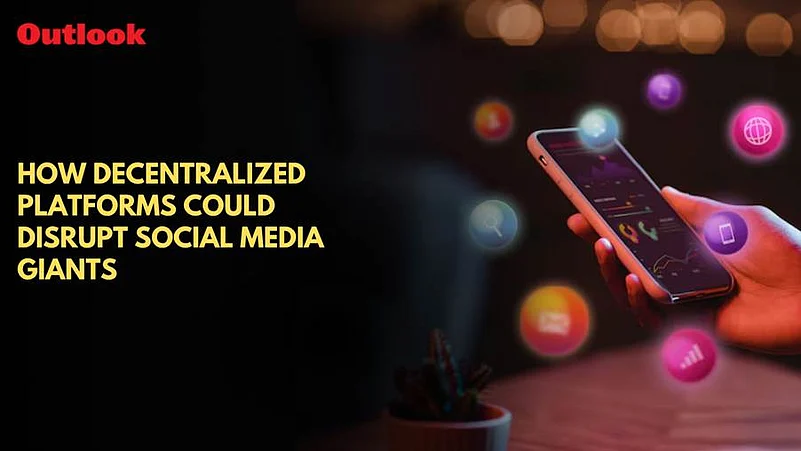The expansion of decentralized platforms provokes significant questions regarding the future of virtual spaces. Do we desire social media as a product to be consumed or as a space to be co-created? Should a select group of firms define what forms of speech are acceptable, or should that fall to the users?
How Decentralized Platforms Could Disrupt Social Media Giants
How Decentralized Platforms Could Disrupt Social Media Giants
Social media is now a great aspect of our everyday lives. With it, we communicate with friends, exchange ideas, find news, and keep up with public discourse. With time, though, many have begun to see issues with the way these sites are run. The majority of social media sites today are run by a handful of big firms. These sites determine what we see, how we engage, and what principles we adhere to.
But a silent transformation is underway—one that might entirely alter the way we use the internet. It’s known as decentralization, and it represents perhaps the largest threat social media giants have ever seen.
What Is a Decentralized Platform?
In plain terms, decentralized platforms are networks that are not owned or operated by a single entity. Rather than relying on a single centralized authority, they are powered by blockchain technology or distributed systems. This implies users have more autonomy over their data, their content, and their privacy. No middleman is making decisions on what to post or who sees more visibility.
It’s all about making the one-way street a roundabout—now everybody is a part of the process, and nobody gets to dictate all the rules.
Why People Are Paying Attention
The possibility of gaining more control of your own content is one that is very attractive to most. In this day and age, people are increasingly sensitive to how much of their personal data is being handled by these major platforms. Whether it is the ads we view, the posts that show up in our feeds, or even the accounts that get suspended without notice, there is an increasingly strong sense of being managed instead of being connected.
Decentralized platforms make a different promise. They imply that individuals can create, share, and connect without sacrificing privacy or leaving it in the hands of a handful of large companies. It’s about putting power into the hands of the people, and this is where the disruption starts.
How They Could Change the Game
The most significant variation between decentralized and centralized platforms is in decision-making. In centralized environments, corporation policies and algorithms determine what is visible or deleted. In decentralized environments, decisions can be made by users themselves under open governance models or consensus systems.
This type of setup results in more openness. If things are changed about how a platform operates, all stakeholders learn about it—and sometimes they have input on those changes. There is also less chance of surprise bans or content takedown due to ambiguous rules.
And most of all, your information remains yours. Decentralized platforms have information in forms that can’t be sold, accessed, or taken away by a company easily.
Challenges Still Remain
Of course, decentralized platforms have their shortcomings. They are still evolving and have technical and social issues. Because they are based on new technologies such as blockchain, some users might find them unintelligible or hard to navigate initially. Additionally, in the absence of good moderation, some fear toxic or false content will spread uncontrollably.
But with time comes innovation. As the early years of the internet saw an explosion of new concepts and unanticipated problems, so also does this latest phase of decentralized communication. The key is that these networks are being formed with a new constellation of values—ones that prioritize user freedom, equity, and transparency.
Looking Ahead: A Choice Between Control and Community
The expansion of decentralized platforms provokes significant questions regarding the future of virtual spaces. Do we desire social media as a product to be consumed or as a space to be co-created? Should a select group of firms define what forms of speech are acceptable, or should that fall to the users?
This is not about technology; it’s about trust. A lot of people are starting to realize that the existing systems are not serving them in their best interests. Decentralization provides a choice, one that vows a more level and user-centric future.
If enough users go out and start using these new platforms, the waves could be huge. Social media could shift away from being a controlled platform and become a more open, diverse, and empowering environment.
In summary, decentralized platforms are not another fad—they are a move away from how we perceive online connection, ownership, and power. Whether or not they replace the giants of the day, they are already forcing them to question the way they do things. And that challenge is the first step towards a more open digital future.
- Previous Story
DAOs For Beginners: How Communities Are Becoming Self-Governed
- Next Story
2M Users Join X1 App: BlockDAG Builds The Most Accessible Crypto Mining Network & Hardware Shipping From June 30
Advertisement MOST POPULAR Advertisement WATCH Advertisement Advertisement PHOTOS Advertisement » Read More





